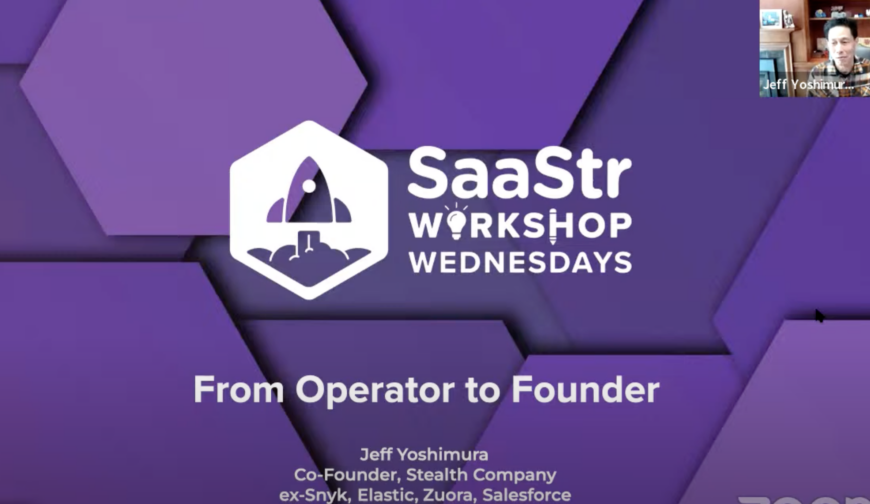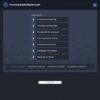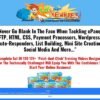If you have experience as an operator in the SaaS industry, you may have thought about starting your own company. What does it take to transition from being an operator to a founder? In a recent Workshop Wednesday session hosted by Jeff Yoshimura, co-founder of a stealth startup and former CMO at Snyk, five key themes for first-time founders were discussed along with valuable lessons learned.
Jeff, with a background as an operator at Elastic, Zuora, and Salesforce, now focuses on building the MVP product and navigating the SaaS ecosystem as a first-time founder.
He shares insights and lessons learned over the past 6-8 months on the differences between being a founder and an operator.
#1: Capital
As an operator, your role revolves around utilizing capital to drive growth through various initiatives. However, as a founder, the focus shifts to being scrappy and efficient with the capital raised, prioritizing building a product and creating a positive work environment.
For first-time founders, the emphasis is on building a product, getting a beta version ready before seeking institutional funding, and fostering a supportive workplace culture.
#2: Product
Operators follow a playbook to scale the product and reach customers, while founders need to understand the ‘why’ behind their existence and address the needs of their target audience through continuous iteration.
First-time founders must empathize with their customers, determine early design partners, and adapt their product based on feedback and market needs.
#3: Culture
Operators contribute to an existing culture, while founders define and live the culture, ensuring alignment with co-founders and maintaining flexibility as the company evolves.
Founders build a foundational culture that withstands challenges and empowers employees to contribute to company value creation.
#4: Hiring
Operators rely on support for hiring, whereas founders focus on recruiting the initial ten employees who are crucial for product development and company growth.
Founders need to identify key hires to lay the foundation for the company’s success.
#5: Operating
Operators manage day-to-day operations based on metrics and reporting, while founders prioritize collaboration, innovation, and building an elite team with limited resources.
Early founder teams must operate efficiently and collectively strive for excellence to achieve long-term success.
A Framework for Becoming a Founder
Right Timing
Consider the time commitment and life experience required before embarking on the founder journey.
Right Pain
Understand and relate to the problem you aim to solve, positioning yourself as the right person for the task.
Right Market
Assess market readiness for your offering and leverage innovative opportunities during downturns.
Right Team
Surround yourself with a supportive team that complements your skills and shares the vision for success.
Right Network
Build a strong network of peers and mentors to gain insights, learn, and grow throughout your founder journey.
Remember to enjoy the process and foster a unified team spirit for long-term success, even in a distributed work environment.














